Audiences, ad diversions, what does television have to learn from the Internet in a crisis?
The following article comes from Long Xiaoge The author Tian Haisheng
Overall TV ratings and arrivals have been declining, and ad delivery has declined for the third year in a row since the first half of 2015. In the face of the strong impact and severe challenges brought by the Internet, what should tv media learn from the Internet?
(Source: Long Xiaollo, Author: Tian Haisheng)
In the face of the impact of emerging media
The aura of television is fading
According to data released by the Internet Information Center, by the end of 2016, the number of Internet users in China had exceeded 731 million, Internet coverage had exceeded 50%, and the number of mobile Internet users had reached 695 million, accounting for more than 95%.
The rapid development of the Internet and mobile Internet has directly promoted the outbreak of network video and mobile video, and the new media, led by network video and mobile video, is gradually replacing traditional media as the most used media form. The aura of television media is fading, and the two pillars on which television media depends - audience and advertising diversion.
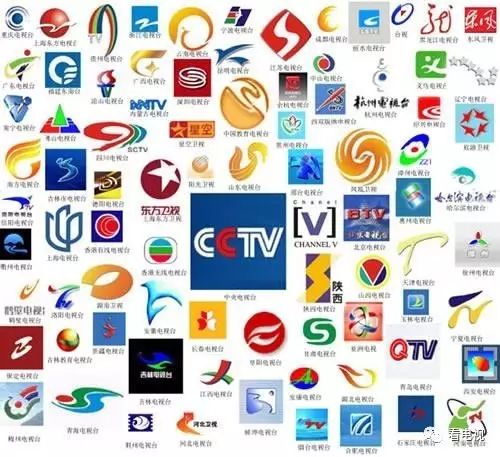
1, TV media audience diversion
Since the 1960s, when domestic television programs were officially launched, traditional television media have attracted a large number of audiences in the long-term development process, especially the loyalty of middle-aged and elderly people to traditional television media is very high.
Television under the traditional media is an important mass media, the audience's audio-visual senses are extended by television, tv media has become an important window for people to recognize and communicate with the outside world, on the one hand, information can be obtained, on the other hand, it is a very important means of entertainment.
In this process, the traditional television media on people's lives, work and so on have a greater impact. However, the good times are not long, all this with the network video as the representative of the new media era, and has undergone dramatic changes.
In the new media age, people can interact with each other, especially young people prefer new media. In the current era of rapid popularity of the Internet and new media technologies and devices, about 37 percent of Internet users have reduced their TV viewing time, according to a study by American Online.
In the new media era, emphasizing people's individual needs and satisfaction, the specificity and diversification of the audience, on the one hand, the survival and development of traditional television media has brought serious challenges, on the other hand, the Internet and new media have thrown an olive branch, so that the traditional television media audience is divided, divided, and even become a different needs and characteristics of the niche.
According to statistics, in the first half of 2017, after 17:40 until 23:00, all satellite channels have different degrees of power-on rate decline, which shows that to a large extent, the two-episode TV series performance is not as good as last year, the enthusiasm is not very high, and many young viewers are streamed to the Internet to watch.
In prime time, audiences between the ages of 15 and 34 dropped 17 per cent, and they may have watched "Three Lives, Ten Miles," "The Name of the People" and "Ode to Joy 2," but probably from an Internet platform.
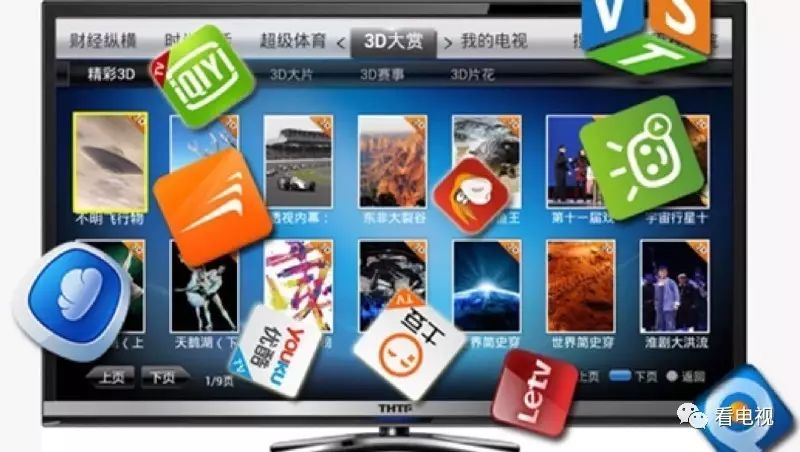
The development of new media on the Internet has created new channels of communication and is also reshaping the way tv is watched in a subtle way. From sitting in front of the screen, to watching TV while brushing Weibo, more and more people are accustomed to large and small screens freely flow, express ideas, participate in interaction. Audience influence is spreading in reverse along the "media chain", revolutionizing everything from programming to industrial development.
2, TV media advertising diversion
CtR Media Intelligence released in April this year, "2016-2017 China Advertising Market Review and Outlook" revealed the current changes in the domestic advertising market pattern: the status of traditional media remains, but market share is divided by other media. According to CTR's advertising monitoring data, China's TV advertising volume in 2016 was Rmb553.8bn, down Rmb21bn, or 3.7 per cent, from 2015.
Tv advertising dropped by an average of RMB1.75 billion per month in 2016 compared to 2015. Internet advertising rose 18.5 percent in 2016 from a year earlier. The total amount of TELEVISION advertising has declined, and the situation is in decline. TV advertising brand holdings are insufficient, since the first quarter of 2013, the high point of the brand decline year by year.
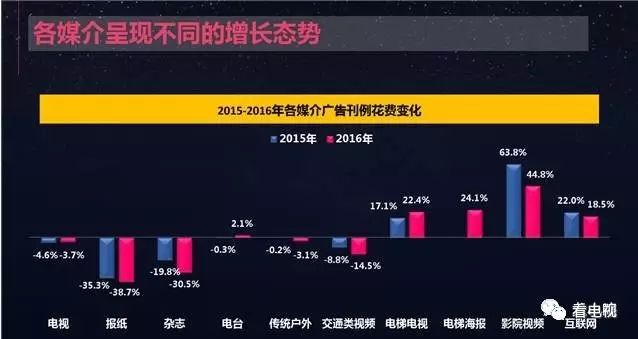
Although the total amount of Internet and mobile Internet advertising and television media still have a large gap, but over time, this gap gradually narrowed will be inevitable. Back in 2013, the U.S. Internet advertising industry surpassed the television advertising industry's $40.1 billion with $42.8 billion in revenue, the first time the U.S. Internet advertising industry has surpassed the radio and television industry.
At the launch of the new products, Li Meng Film President Su Xiao boldly predicted that the sales price of the top 20 popular video sites in 2017 will surpass that of TV, that the first advertising revenue of video sites will surpass the top TV brand for the first time, and that the number of users watching shows through video sites will exceed that of TV.
Tang Xiaoming, chairman of the Micro Shadow Capital Investment Committee, also said in an interview that the video site will be fully profitable in two years. On April 20th, Youku Spring Festival, Yang Weidong, president of Alibaba Cultural and Entertainment Group, said that the video platform is actively integrating into the industrial chain, deeply involved in all aspects from production to broadcast, to cash out, can not rely solely on the ability of a single platform, but requires the ability to play with ecological platforms.
As can be seen, the future video network will also build such as derivatives, click-sharing, advertising, fees, network drama split profit model benign profit ecosystem, and once this ecosystem opened may be a new blow to traditional television stations.
What does the TV media want to learn from the Internet?
The rapid development of new media technology, the gradual diversion of TV audience, the loss and decline of advertising, is an important symbol of the deterioration of the traditional media ecological environment.
Young audiences gathered in large numbers on the network platform and mobile terminal, active consumers like to use the network platform for free consumption, the most vivid consumer pleasure so that they are closely tied to social media, advertisers follow-up so that the main position of consumption and the main battleground of advertising have shifted.
Traditional media television, facing the new media competition for the "cake", the transformation has become to continue to survive and develop around the past a bump.
How to transform, has become a topic that TV people talk about, the transformation of the prescription from top to bottom is also not less open: "media fusion to build an all-media ecological platform," "TV plus", "big data cloud platform" and so on.
The author thinks that these are from the strategic height of the layout of television media transformation, of course, is also the television media must think about the issue. However, these prescriptions are not immediate special effects drugs, are required to invest heavily, big changes to achieve.
So, in the face of the relentless impact of reality, should there be a gun, bayonet tactical considerations? Now there is a very fashionable saying: Internet thinking. The first to put forward this concept is Baidu. In 2011, at a major Baidu event, founder Robin Li first mentioned the word "Internet thinking" when discussing with entrepreneurs in traditional industries.
Entrepreneurs need to think about the Internet in the future, he says, and maybe what you're doing isn't the Internet, but the way you think about things is going to be like the Internet.
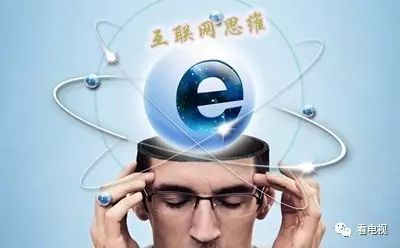
Over the years, the concept of "Internet thinking" has been recognized in all walks of life and fields. At present, although there is no exact definition of "Internet thinking", but such as "user experience" "big data" "platform" and other keywords have become "Internet thinking" indisputable basic characteristics.
Television media now face the impact of the Internet, mobile Internet, is called: learn from the opponent to defeat the opponent. Therefore, television media must learn from the Internet, must understand the Internet thinking. Although internet thinking is not a panacea for all diseases, it is not a false height.
If you can understand the essence, it can be used as a television media to deal with the Internet, mobile Internet and other new media impact of tactical means. So what exactly does the TELEVISION media have to learn from the Internet?
1, learning the Internet "two-way interaction"
The biggest difference between television media and new media is the lack of interaction. The way of media integration of television, first of all, to break the traditional television one-way communication, learn to use the Two-way communication of the Internet, television viewers from passive acceptance to active participation of users and fans, in order to improve the view of the program sticky and influential.
As for the lack of interaction between television media, in fact, TV media people have long been aware of, but also hope to change, so vigorously carry out cooperation with websites, communication operators. The most common form is "participate in the program discussion, please follow the program's official microblog, WeChat xxx", and so on.
In the era of information fragmentation, the audience's interests, concerns are changeable, this interactive way often leads the audience to a more adhesive, topic-sensitive microblogging, WeChat or forum. Television media spend a lot of human and material resources to produce programs for the emerging media to provide a richer theme and platform, so this kind of interaction is not only junior and more effective.
Embrace the new media, learn to use the Internet two-way interaction more successful when Hunan Satellite TV launched the interactive music program "I want to sing with you." "I want to sing with you" is different from the traditional music programs in the past, with the greatest gesture and sincerity to embrace the new media.
In the way of participation, the program for all the mobile phone star people to create a meal walk dating will not be scolded the most legitimate reason: to participate in the "I want to sing with you" program, through the mobile app "singing" upload their own and star singers with the same box singing video, selected to come to the scene of the program, and the superstar really hand in hand chorus.
For the all-day mobile phone party, "I Want to Sing with You" this more direct, more grounded embrace of the new media to participate in the interaction, is definitely ahead of the music interactive festival innovation.

With the development of various smart TV hardware devices and mobile application software, TV programs have been able to achieve a large number of interactive forms, such as "WeChat shake" "watch while buying" and so on. However, compared with network video, most TV programs are not highly interactive, still need to change the concept of communication, from the creative stage will be the elements of audience interaction into it, to maintain and even enhance the appeal and influence of television to the public.
2, learning the Internet "open and win-win"
The Internet industry, which grew up in a market environment, is relatively open and has adequate incentives, which is why so many TV executives and producers are jumping ship.
Although in recent years, some television stations have made certain achievements through market-oriented reforms such as "separation of production and broadcasting", such as Zhejiang Satellite TV, Oriental Satellite TV through the opening platform, the introduction of social production companies as partners, to create a "China's good voice" "Laughing Aojiang Lake" and a series of successful programs.
Another successful example of tv media openness and win-win results is the "Taiwan Network Alliance" formally formed by Alibaba Group and Beijing Satellite TV in the first half of this year.
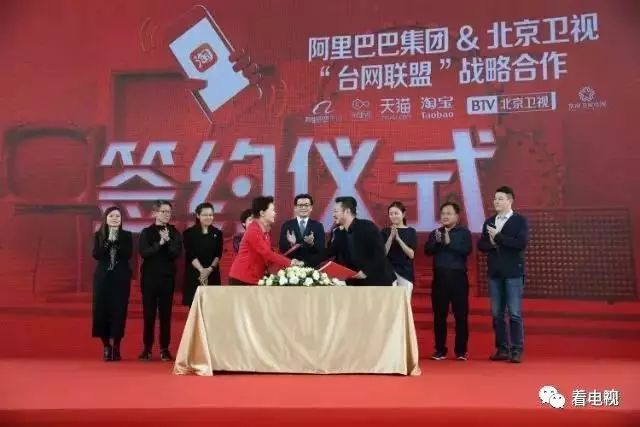
Beijing Satellite TV will open its own theater, variety, advertising time resources to Ali, Ali will use these content resources as a new attempt at scene marketing. Such cooperation, for Beijing TV, will change the form of television, shopping experience, living room culture, so that the audience with entertainment way to consume information, consumer goods, consumption time.
For Ali, this cooperation with Beijing Satellite TV for the first time integrated e-commerce and television channels, from the television large-screen content entrance, through unprecedented channel-wide open interaction efforts, to achieve real-time transmission of television and network e-commerce platform, but also for businesses to provide new entertainment marketing services.
Although there has been an open pace of television media, but in general, China's television system still has room for further reform and opening up. On the one hand, to "introduce", through the establishment of the market docking "benefit-sharing" mechanism, the introduction of high-quality social capital and resources, jointly build successful content and brands.
On the one hand, we should "go out", jump out of the limitations of the platform, and liberate their own productivity. Such as Oriental Satellite TV, Zhejiang Satellite TV began to encourage its production team for the Internet platform reverse production of content, is worth looking forward to the market practice. In the open environment of the Internet, television media can play the "content is king" card with more flexible and diverse means.
3, learning the Internet "fusion development"
The greatest advantage of the Internet is that it connects various industries through the Internet, allowing them to blend in, collide with each other, and create new value. This is what the television industry lacks.
Television has long relied mainly on advertising to keep its operations running by "secondary selling" viewers' attention to advertisers. This mode of operation has become unsustainable, on the one hand, video sites and other new media platforms to seize television advertising resources, on the other hand, some advertisers are also abandoning television advertising, a more difficult to measure the effectiveness of marketing, and instead develop a more direct and effective consumer-oriented platform.
For the television industry, we must find a new profit growth point, in order to get out of the difficult situation, and a big solution is based on the content advantages of television stations, around the high-quality IP cross-industry integration and development, to build a longer industrial chain.
In foreign countries, many television stations will be successful TV program brand licensing the development of derivatives, but in our country, TV content derivative industry development is still in the exploratory stage, has not yet formed a large scale, but fortunately there are already television media, see the opportunity here, and took a substantial step.
On May 22 this year, Jiangsu Satellite TV and NetEase's original life-type self-employed e-commerce brand - NetEase strictly selected to reach strategic cooperation, the two sides will be emotional program "We love each other" as the content carrier, jointly created "Black Phoenix" series of products.
Through the advantages of resource investment, innovation linkage, so that entertainment and e-commerce seamless docking, to "Internet and entertainment" cooperation model, around the "We love the love of God" industrial chain deep development, and jointly create "black phoenix" IP and series of products.
These include jewelry, couples snacks, couples clothing, home space and other theme concept design, and "black phoenix" series of goods will be "We love it" program focused exposure, through content implantation, subtly passed on products and concepts to young consumers.
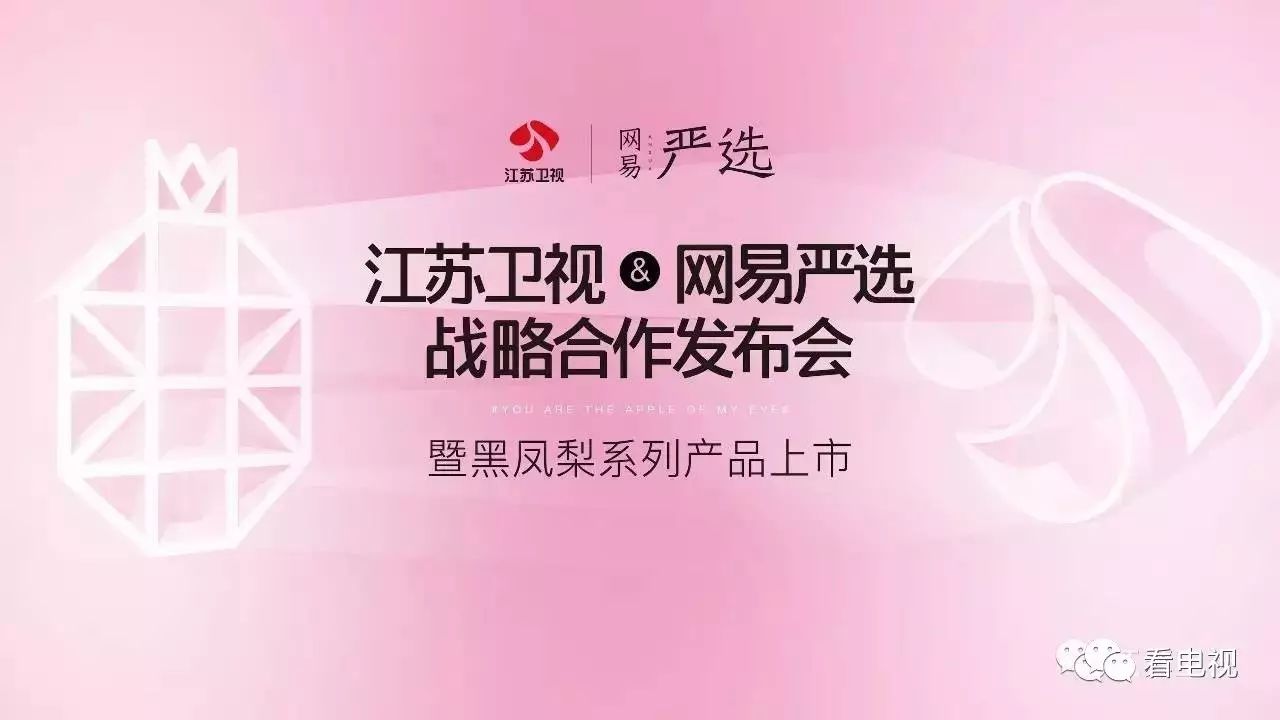
Through the upgrading of the operation mode of "Internet Plus", to achieve a breakthrough in the industrial pattern, perhaps the future sustainable development of television direction.
In the face of the development of the Internet and mobile Internet, TV media need to strengthen Internet thinking, truly absorb the advantages of Internet "interaction, openness and integration", and upgrade the traditional TV content production and dissemination mode and content operation mode to cope with the huge impact of new media.
Recommended reading
The second season of "China's New Song" opens with a song to build a dream for music
News people must see 6 film and television works, the last one you can never imagine!
To reproduce, please indicate the source at the beginning of the article with a link to the original text.For more information, please log inMobile version of Variety Plusm.zongyijia.net
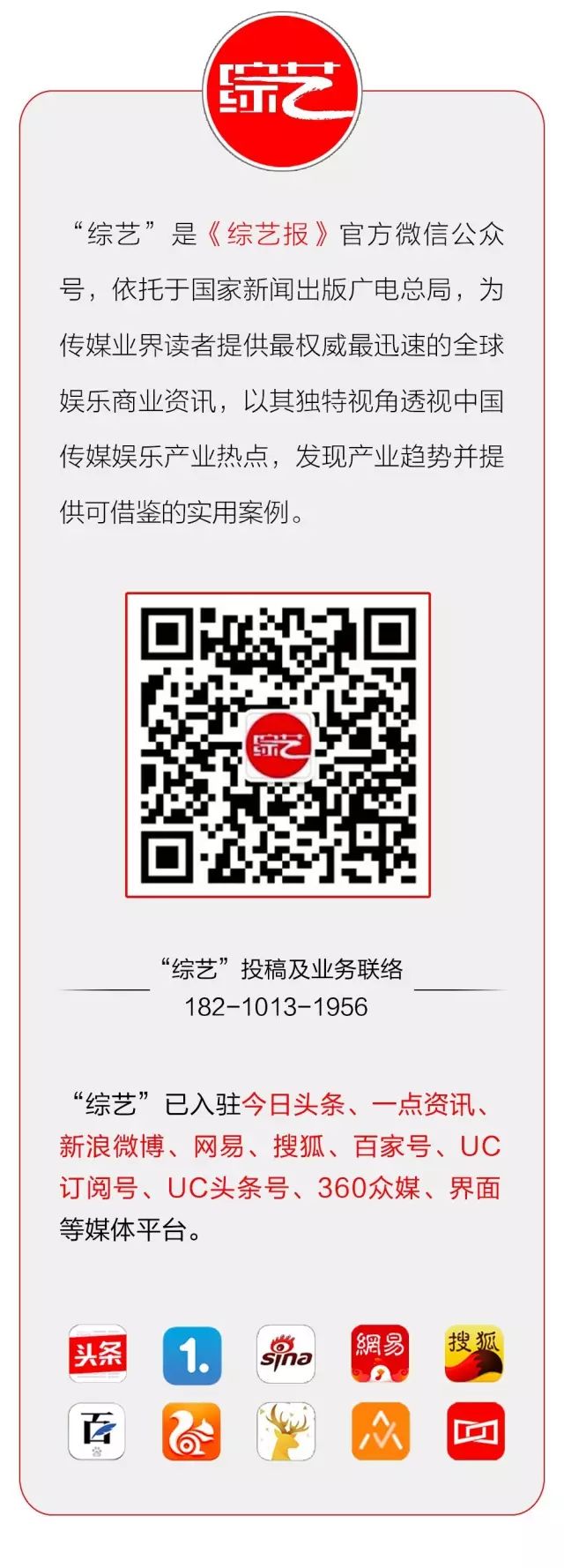
Go to "Discovery" - "Take a look" browse "Friends are watching"